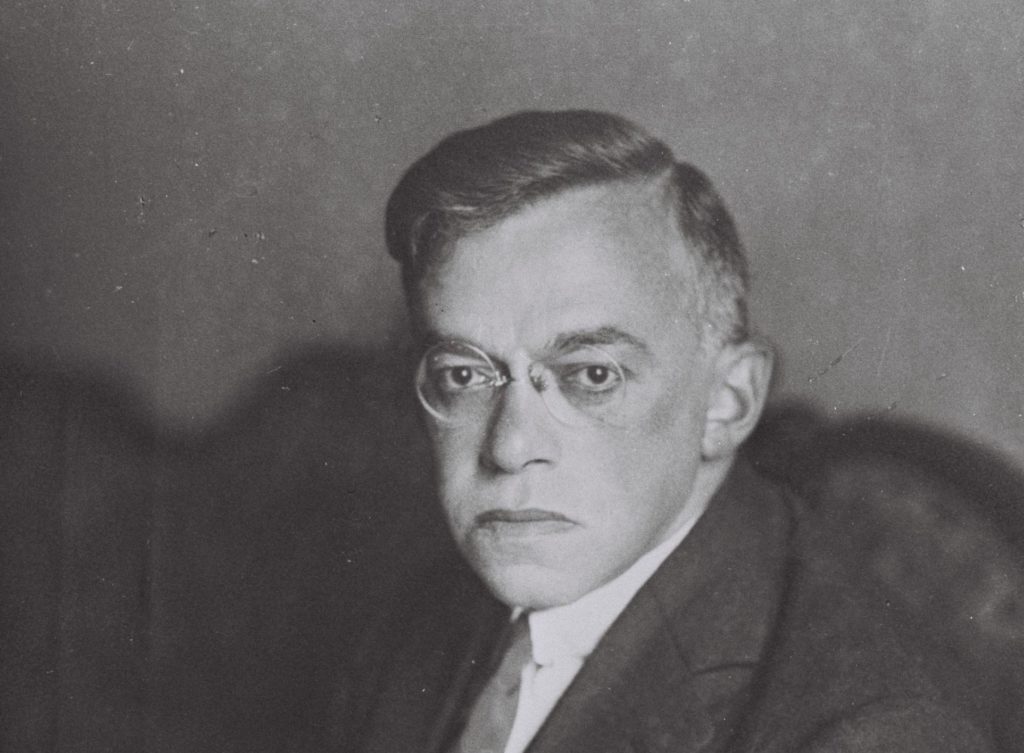Australia/Israel Review
Biblio File: Revisionism revisited
Dec 1, 2017 | Paul Monk

Paul Monk
Jabotinsky’s Children: Polish Jews and the Rise of Right-Wing Zionism
Daniel Kupfert Heller, Princeton University Press, 2017, 331 pp., $66.00
Daniel Kupfert Heller is assistant professor of Jewish Studies at McGill University, Montreal – Canada’s most prestigious university. Jabotinsky’s Children is his first book and was based on a PhD dissertation completed at Stanford University in 2012. It is a great start to an academic career. We shall hear more of him, if this book is any guide to his talents.
Both his subject and the scholarly acumen with which he has approached it have deep roots in his tertiary education. He singles out a number of mentors whose influence shaped him as a young historian. Were it not for Derek Penslar at the University of Toronto, he remarks, “I would never have considered a career as a historian.” Several of Penslar’s classes on the history of the Jews in Europe and the Middle East captivated him. Anna Shternshis and Piotr Wrobel opened avenues for him to extend his interest in the Jews of Eastern Europe.
Aron Rodrigue, Norman Naimark and Steven Zipperstein at Stanford then guided his immersion, as a graduate student, in the history of both the European and Jewish Right and his development as a thinker. He pays particular tribute to Zipperstein for his “extraordinary level of commitment to training historians as thinkers, teachers and writers.” He was fortunate, indeed, to have such a mentor. Zipperstein’s own work on the Jews of Eastern Europe is of the first rank.
How bold it was of Heller to begin with a study of Jabotinsky, such a seminal figure in the history of Zionism. From more or less the beginning of his career, Jabotinsky, as Heller shows, clashed with the mainstream Zionists on two grounds: he believed that a State of Israel would require a military force to delineate and defend it; and he believed that socialism would impoverish it and could generate a Leninist politics of the kind he had seen arise in his native Russia. Zionism, he argued, should be resolutely capitalist. The first claim was hammered home in the 1930s, in resistance to Arab pogroms in Palestine. It led to the creation of the Hagana as a Jewish self-defence force.
The second argument took much longer to prevail. Perhaps it was only the economic reforms of the 2000s, when Ariel Sharon was Prime Minister and Benjamin Netanyahu Minister of Finance, that Zionist capitalism really came into its own – albeit with social consequences that caused considerable and ongoing disquiet. They did, however, trigger an economic boom in Israel, turning it into a hi-tech start-up nation and the most dynamic economy in the Middle East or Eastern Mediterranean world.
The influence of Jabotinsky on the use of force by the Zionist movement has been a matter of profound controversy for many decades. So much so, that when one opens such books as Avi Shlaim’s The Iron Wall: Israel and the Arab World (2000), Bruce Hoffman’s Anonymous Soldiers: The Struggle For Israel 1917-1947 (2015) or Padraig O’Malley’s The Two State Delusion: Israel and Palestine – A Tale of Two Narratives (2016), almost the first thing one does, is turn to the Index and look under “Jabotinsky, Vladimir.” Shlaim devotes five pages in his Prologue to Jabotinsky; which is unsurprising, since the very title of his book is derived from Jabotinsky’s writing in the 1920s. Hoffman’s whole book is about Revisionist Zionism and the question of terrorism.
Jabotinsky is widely seen as the man who inspired and justified the hard-line militarism of Irgun and the Stern Gang, as well as more widespread militaristic hubris attributed to Israel after 1948 and more particularly since 1967. His figure looms behind those of Avraham Stern, Menachem Begin and Yitzhak Shamir, Ariel Sharon and Benjamin Netanyahu. His ideas, more than those of Theodor Herzl, Chaim Weizmann or David Ben-Gurion, lend themselves to citation as evidence that Zionism was always a self-consciously racist and nationalist project aimed at displacing the Arabs from Palestine, not co-existing with them. Stern and a few others, of course, fantasised about an Israel extending from the Nile to the Euphrates.
For this reason, Heller’s book on Jabotinsky and the Eastern European roots of Revisionist Zionism is a vital contribution. The miracle is that he has given us a wonderfully well researched, finely nuanced and deeply informative history, rather than an ideological polemic. The story he has to tell fills a large and important gap in our common understanding of Revisionist Zionism in general, Jabotinsky personally and the genesis of that militarism which flowed, via several streams, into the founding of the state of Israel and its political development. This is no mean achievement and it is a great tribute to both the young historian and his supervisors that he has accomplished it – masterfully.
The crucible, he shows, was Eastern Europe and above all Poland in the 1920s and 1930s. Poland had a long history, but for centuries had been ruled by others – Germans, Russians, Austro-Hungarians. After the First World War, it was one of several new nations carved out of the defeated or collapsed empires and it was struggling to define itself, not least with relation to its various ethnic minorities, among whom the Jews were a substantial and often resented presence. Various strands of Judaism and Zionism existed and competed in this context. Heller shows us those various strands and their conflicts scrupulously and then demonstrates how Revisionist Zionism modelled itself on Pilsudski’s Polish nationalism and militarism in the 1920s and 1930s – seeing Poland as a parallel to Palestine.
Jabotinsky, born in Odessa, in pre-revolutionary Russia, was already a Zionist when the First World War broke out, and his worldview was decisively shaped by the realities of that upheaval, the Balfour Declaration and the Bolshevik Revolution, which uprooted the world in which he had grown and been educated. Steven Zipperstein’s work on the Jews of Odessa made him an ideal supervisor for Heller in dealing with all this. But the crucial development for Jabotinsky was founding the Jewish Legion in Palestine during the war, in collaboration with Joseph Trumpeldor. One is reminded, reading Heller’s account of all this, of Gershom Scholem’s 1913-19 diaries, Lamentations of Youth (Belknap, Harvard, 2007).
As Heller shows, Jabotinsky found such lamentations in Pilsudski’s Poland after 1919 and helped create Jewish youth movements with a martial character: Betar, HaTzohar and, finally, the Irgun. Menachem Begin rose through Betar as a young man who admired Jabotinsky but challenged him in the late 1930s for being too equivocal and out of touch with the martial nationalism of Revisionist youth. The older man died in New York in early August 1940, with Nazism rampant and Israel far from established. The majority of those who had rallied to Betar in Poland perished in the Holocaust. Begin survived – in Lithuania and Russia – and made it to Palestine with his famous maxim “I fight, therefore I exist.”
Heller does not argue that Revisionist Zionism has been vindicated. He concludes by taking issue with Benjamin Netanyahu’s interpretation, in 1993, of a speech given by Jabotinsky to a Jewish audience in Warsaw in August 1938. That interpretation was proffered as a critique of the Oslo accords and a warning that the Jewish inclination to pacifism had led millions to the slaughterhouses of the Nazis. The Jews had to be prepared to fight their neighbours and instil fear in them. Heller notes that Jabotinsky had not foreseen the Holocaust and that his 1938 speech should not, therefore, be used to imply that he had.
He is, nonetheless, more generous to Netanyahu than veteran Israeli journalist Ben Caspit, long the most prominent columnist at the Israeli daily Ma’ariv, whose new biography The Netanyahu Years, delivers a damning indictment of the prime minister as a person and a politician. Caspit’s work will confirm the view Moshe Arens expressed in a Ha’aretz op-ed five years ago: that Ma’ariv had moved to the political Left, “forsaking the right-wing readership that was loyal to it for years.” Of all countries in the Middle East, it is only in Israel that such a biography of a leader in power could have been written at all. And this, too, is consistent with the vision of the Jabotinsky Heller shows us. His parsing of the history is Talmudic in the finest sense and one imagines that Jabotinsky, were he alive today, would be both moved and impressed by what this young Jewish scholar has written.
Paul Monk (www.paulmonk.com.au) is Head of Customer Solutions at Dysrupt Labs and a prolific author. His latest book, The Secret Gospel According to Mark, will be available by this summer from www.echobooks.com.au/biography/the_secret_gospel. © All rights reserved.
Tags: Europe






